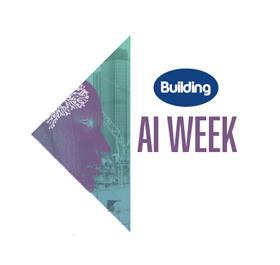Project delays, material damage and workforce sickness can all be reduced using tools to model and prepare for different scenarios posed by the increasingly variable climate, René Morkos of ALICE Technologies writes

>> Take part in our AI reader survey and enter a £50 voucher prize draw >>
Talking about the weather is a national sport in the UK. Predicting it, however, can be a nightmare, particularly for anyone working in the construction industry. Extreme climatic conditions can bring projects to a halt and send costs spiralling out of control.
Now, however, artificial intelligence offers a potential solution to the vagaries of the weather, factoring the impact of variable conditions into project planning and providing potential solutions.
The impact of weather on construction
ccording to one study, construction project duration has been extended by an average of 21 per cent in the UK over the past five years because of weather factors, resulting in missed completion dates and significant increases in costs. This looks set to get worse as the impact of global warming continues.
Met Office data shows that the UK is 9 per cent wetter now than it was between 1961 and 1990. The UK experienced its hottest ever day of 40.3°C last July, causing significant problems for major infrastructure such as roads and rail, and its windiest day with gusts of 122mph in February 2022.
AI offers a solution, with tools available that can help large general contractors and project owners to address the threats posed by the changing climate.
How AI can help to weather the storm
AI-powered construction optimisation software, like that from ALICE Technologies, can help schedulers to factor variable weather into project plans. By adding in a variety of weather outcomes as potential impacts, project teams can test different scenarios and see how they will influence delivery. It allows them to proactively create a plan of action in the event that an extreme weather event affects the construction process.
When Parsons, a large general contractor in Canada, was developing its construction schedule for a light rail project, planners knew that they had to account for potential shutdowns during the worst of the winter weather.
Using ALICE, they ran numerous “what if” scenarios to model different winter scenarios and create plans that would help to keep the project on schedule. With the software generating thousands of options in minutes, Parsons drastically reduced scheduling time and had a risk mitigation strategy ready to go from the early days of the project.
Proactively planning for the potential impact of poor weather is critical to reducing downtime
Proactively planning for the potential impact of poor weather in this way is critical to reducing downtime as it drives awareness of the risks involved and allows for the planning and the communication of processes and potential solutions to key stakeholders early, ensuring that project efficiency will be maintained in the event that something happens.
The heat is on for workforce efficiency
It is not just low temperatures that are a risk. The number of extremely hot days in the UK is predicted to increase four-fold, with the nukmber of days exceeding 25°C rising from around 10 to 37 days per year.
Hot temperatures can cause health and safety issues for a construction workforce and increase the risk of more dust and airborne particles being kicked up during building activities. This dust can make workers unwell and clog the fans and engines of machinery, reducing efficiency and increasing running and maintenance costs.
These extremes in weather can also damage materials with, for example, high temperatures warping metal or heavy rain distorting timber.
Because the weather is so changeable and unpredictable, it is hard for project planners to account for every possibility
ALICE can help here too, ensuring that programme changes can be made to keep workers, equipment and materials out of harm’s way while maintaining construction schedules.
As extreme weather becomes more commonplace in the UK, one thing is clear – the risk will increase. But, because the weather is so changeable and unpredictable, it is hard for project planners to account for every possibility, with the time investment required to model various options just too large.
That is where AI comes into its own, able to analyse high volumes of data very quickly and provide solutions that will keep projects on time and on budget, whatever the weather.
René Morkos is founder and CEO of ALICE Technologies and adjunct professor at Stanford University

>> Also read AI series, part I: What does artificial intelligence mean for construction?
>> Take part in Building’s reader survey on AI in construction
>> AI series, part II: Margins of error – how to work with an AI system that is not always right
>> AI series, part III: Way to go – still scratching the surface of AI
>> Editor’s view: AI in construction: the good, the bad and the in between


























No comments yet